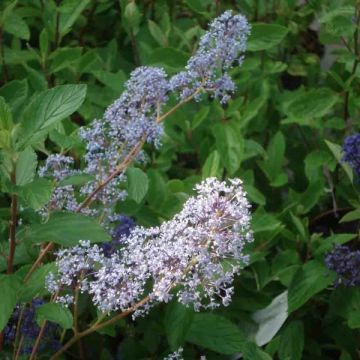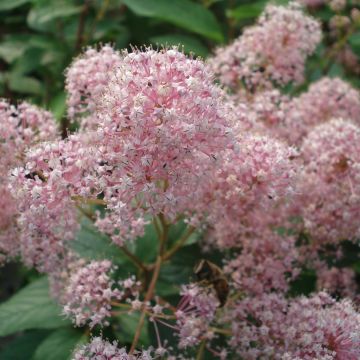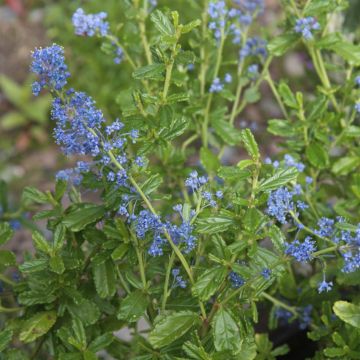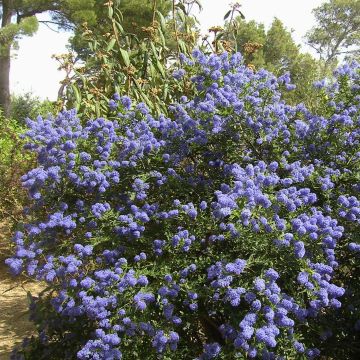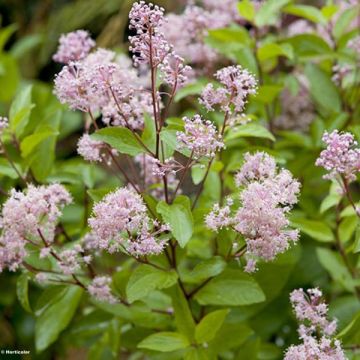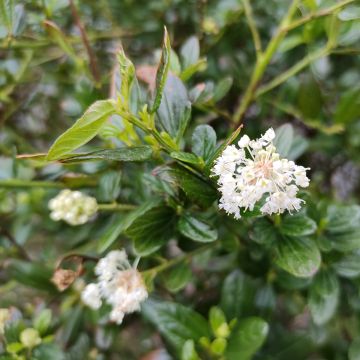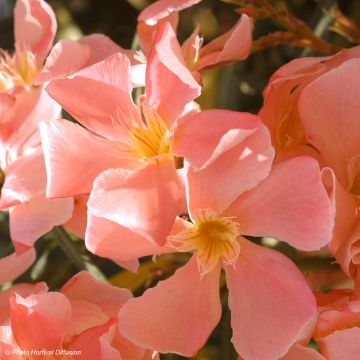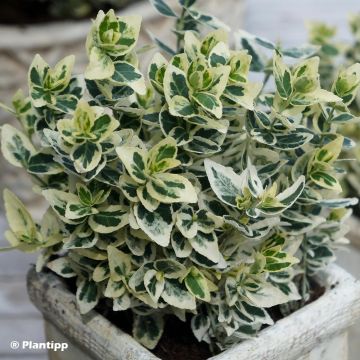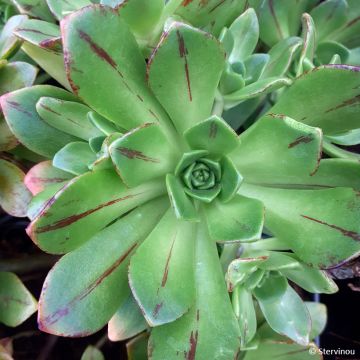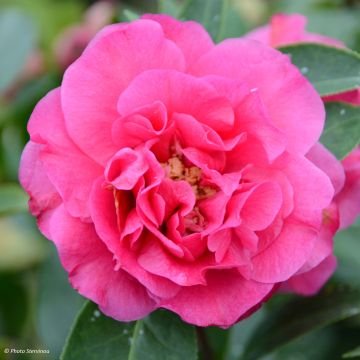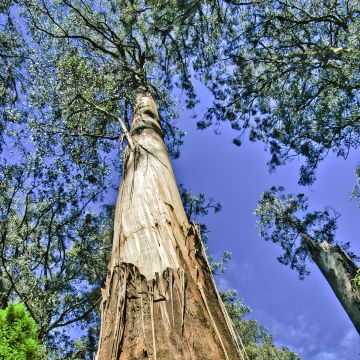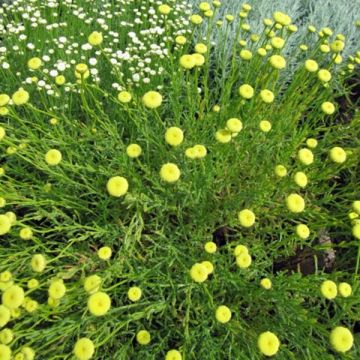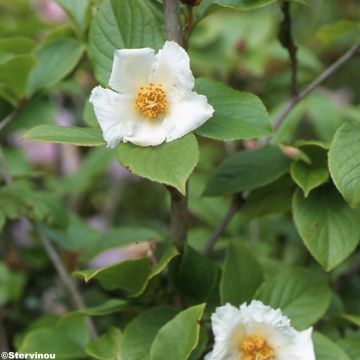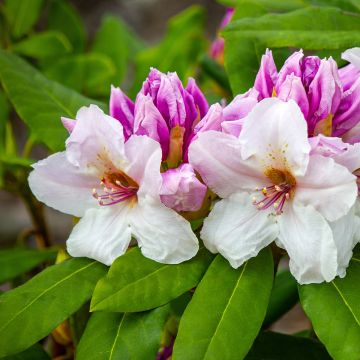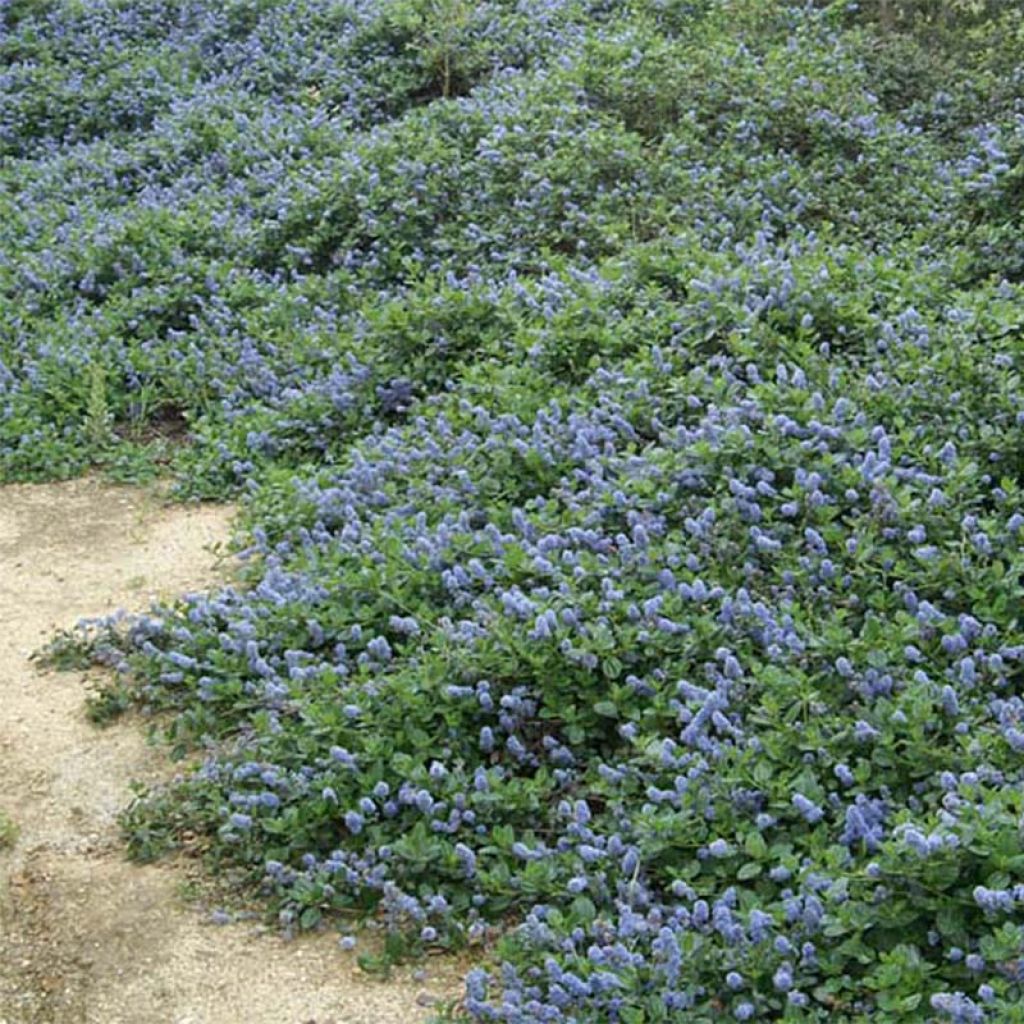

Ceanothus griseus var. horizontalis Yankee Point
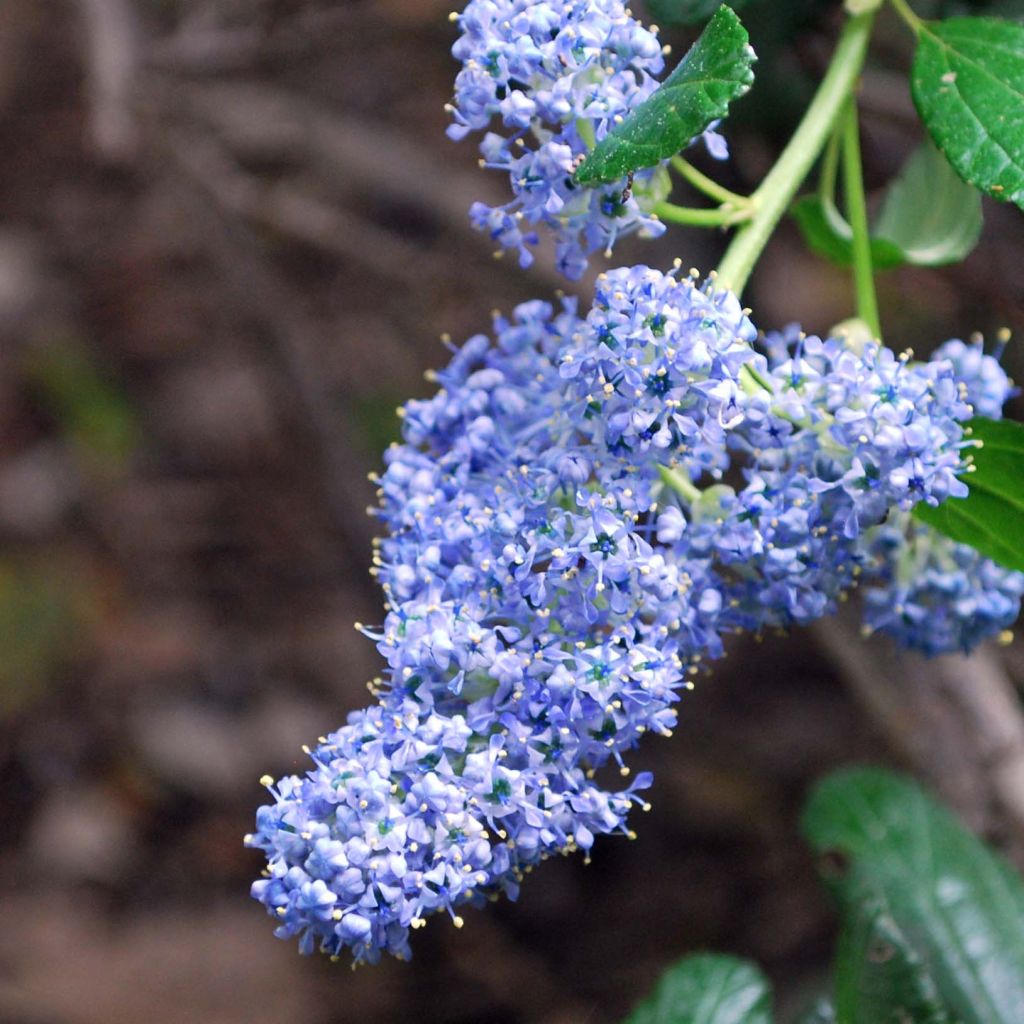

Ceanothus griseus var. horizontalis Yankee Point
Ceanothus griseus var. horizontalis Yankee Point
Ceanothus griseus var. horizontalis Yankee Point
California Lilac
Very beautiful young plants, good growth in the ground.
Patricia, 29/12/2024
This item cannot be shipped to the selected country
Delivery charge from €5.90
More information
Schedule delivery date,
and select date in basket
This plant carries a 24 months recovery warranty
More information
We guarantee the quality of our plants for a full growing cycle, and will replace at our expense any plant that fails to recover under normal climatic and planting conditions.
From €5.90 for pickup delivery and €6.90 for home delivery
Express home delivery from €8.90.

Does this plant fit my garden?
Set up your Plantfit profile →
Description
The Ceanothus griseus var. horizontalis Yankee Point is one of the most commonly planted varieties of ceanothus in mild climates due to its exceptionally long flowering period, as well as its rapid growth and ease of cultivation in ordinary but well-drained soil. The bush forms a fairly imposing ground cover mass and is covered with deliciously fragrant flowers in a very bright blue, for 5 to 6 weeks in spring. Its dense and glossy, dark green, foliage, makes it attractive all year round. It excels on large slopes, associated with yellow, orange, fuchsia pink or red blooms.
The Yankee Point Ceanothus is a cultivar discovered several years ago at Yankee Point, along the Pacific Ocean coast, in Monterey County, California. It comes from the Ceanothus griseus var. horizontalis, the Carmel ceanothus, characterized by a very spreading habit and a particularly long flowering period. Ceanothus belong to the Rhamnaceae family, they are cousins of our buckthorn (Frangula alnus) which, once established, rely only on rainwater.
'Yankee Point' is a dense and very wide bush, much wider than it is tall, supported by branches that overlap in successive layers. Its growth is quite fast in reasonably fertile soil where it will reach about 1m (3ft 4in) in height, with a spread of 3m (9ft 10in) at maturity. Its abundant flowers appear in April-May, depending on the climate, at the tips of the previous year's branches and grouped in small, dense and branched panicles. The inflorescences are a very bright medium blue. This remarkably fragrant flowering is very rich in nectar and followed by the formation of seeds which are explosively released. The evergreen foliage is composed of small alternate, ovate, slightly toothed, dark green leaves with a glossy blue hue. Its average lifespan is 15 to 20 years, and it prefers a maritime climate. Note that this variety appreciates slightly compact and reasonably fertile soils. It is hardy down to about -8/-10°C (17.6/14°F) once established, but the foliage can sometimes be slightly burned from -5°C (23°F).
Because of the ongoing love of blue blooms, horticulturists have 'invented' new varieties of ceanothus in recent years that are easier to acclimatize and smaller in size, adapted to our gardens and terraces. Tolerating clay or slightly chalky soils as long as they are loose, the Yankee Point Ceanothus requires space and looks good on a long slope or along a large alley. It is also a beautiful subject to plant in isolation on a terrace, not far from the front door, or against a wall. It can be placed in a mass planting, informal hedge, in an oceanic or Mediterranean garden or even by the seaside. As a companion, one can choose the Californian flannel bush (Fremontodendron californicum), pink-flowered rockroses (Cistus purpureus), California poppies or the Syringa microphylla Superba, with clusters of small pink flowers that should bloom simultaneously.
Report an error about the product description
Ceanothus griseus var. horizontalis Yankee Point in pictures
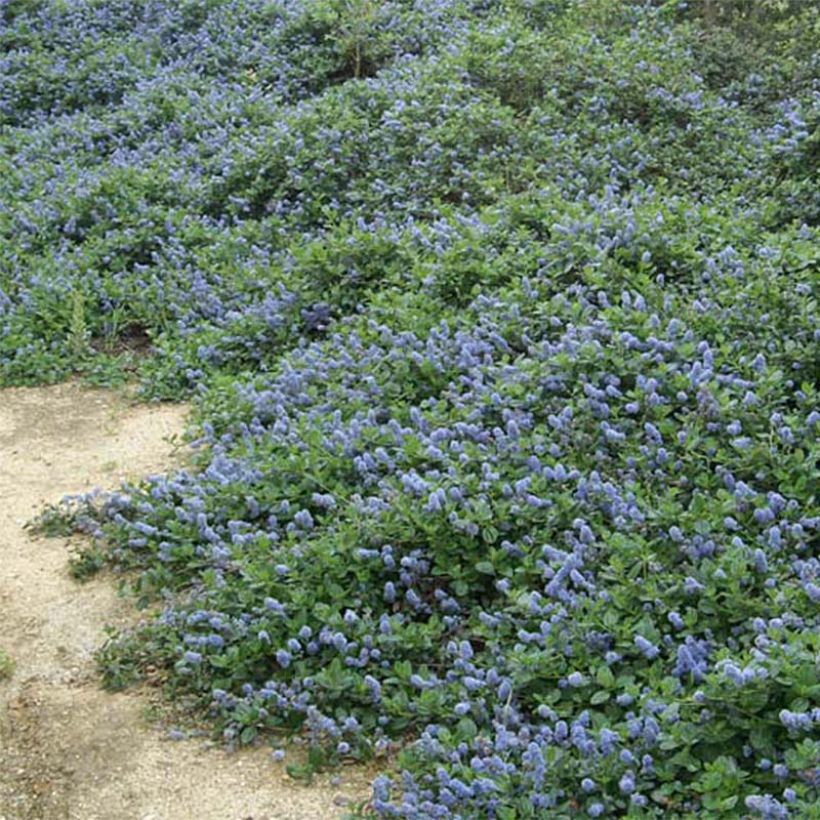

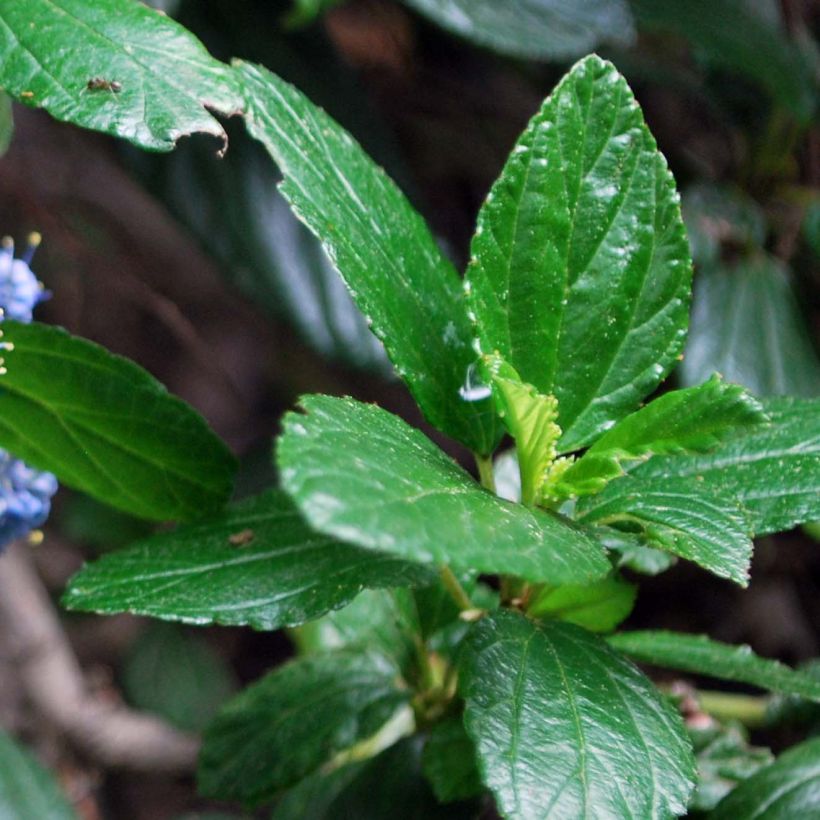

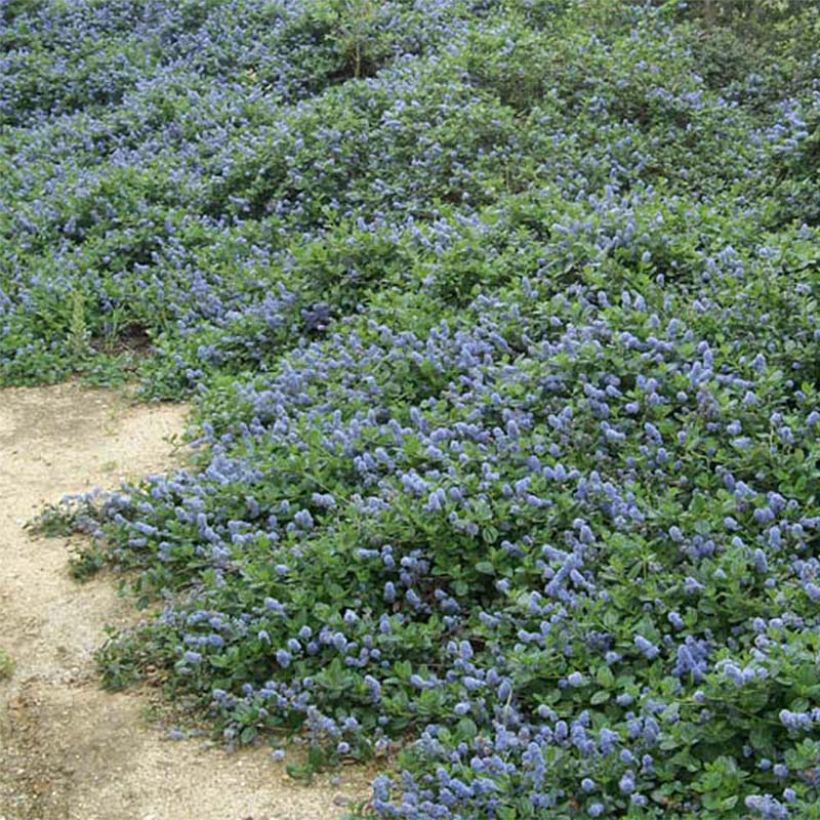

Plant habit
Flowering
Foliage
Botanical data
Ceanothus
griseus var. horizontalis
Yankee Point
Rhamnaceae
California Lilac
Cultivar or hybrid
Other Ceanothus
Planting and care
Place Ceanothus in a sunny or partially shaded position, in ordinary soil that should be moist to dry in summer, but well-drained. This bush does not like cold drafts. It can be placed near a wall. Plant it throughout the year except during frost, by mixing your garden soil with compost, coarse sand, perlite, or any material that does not retain moisture. Give it a generous watering once or twice a week to promote establishment. Only water twice a month from the third year onwards, and only in case of drought. It is a plant that requires very little maintenance and grows easily as long as the conditions are met. Constant moisture in the soil during the winter period, but also in summer in hot regions, is harmful to the plant. The combination of heat and humidity leads to the development of a fungus that attacks the plant's collar and will be fatal. In regions affected by high summer temperatures, it is better to plant Ceanothus on a mound. You can lightly prune the stems after flowering to encourage branching. Fertilizer applications are not recommended (just add a little bone meal at the bottom of the planting hole). Avoid severe pruning.
Planting period
Intended location
Care
-
, onOrder confirmed
Reply from on Promesse de fleurs
Evergreen shrubs
Haven't found what you were looking for?
Hardiness is the lowest winter temperature a plant can endure without suffering serious damage or even dying. However, hardiness is affected by location (a sheltered area, such as a patio), protection (winter cover) and soil type (hardiness is improved by well-drained soil).

Photo Sharing Terms & Conditions
In order to encourage gardeners to interact and share their experiences, Promesse de fleurs offers various media enabling content to be uploaded onto its Site - in particular via the ‘Photo sharing’ module.
The User agrees to refrain from:
- Posting any content that is illegal, prejudicial, insulting, racist, inciteful to hatred, revisionist, contrary to public decency, that infringes on privacy or on the privacy rights of third parties, in particular the publicity rights of persons and goods, intellectual property rights, or the right to privacy.
- Submitting content on behalf of a third party;
- Impersonate the identity of a third party and/or publish any personal information about a third party;
In general, the User undertakes to refrain from any unethical behaviour.
All Content (in particular text, comments, files, images, photos, videos, creative works, etc.), which may be subject to property or intellectual property rights, image or other private rights, shall remain the property of the User, subject to the limited rights granted by the terms of the licence granted by Promesse de fleurs as stated below. Users are at liberty to publish or not to publish such Content on the Site, notably via the ‘Photo Sharing’ facility, and accept that this Content shall be made public and freely accessible, notably on the Internet.
Users further acknowledge, undertake to have ,and guarantee that they hold all necessary rights and permissions to publish such material on the Site, in particular with regard to the legislation in force pertaining to any privacy, property, intellectual property, image, or contractual rights, or rights of any other nature. By publishing such Content on the Site, Users acknowledge accepting full liability as publishers of the Content within the meaning of the law, and grant Promesse de fleurs, free of charge, an inclusive, worldwide licence for the said Content for the entire duration of its publication, including all reproduction, representation, up/downloading, displaying, performing, transmission, and storage rights.
Users also grant permission for their name to be linked to the Content and accept that this link may not always be made available.
By engaging in posting material, Users consent to their Content becoming automatically accessible on the Internet, in particular on other sites and/or blogs and/or web pages of the Promesse de fleurs site, including in particular social pages and the Promesse de fleurs catalogue.
Users may secure the removal of entrusted content free of charge by issuing a simple request via our contact form.
The flowering period indicated on our website applies to countries and regions located in USDA zone 8 (France, the United Kingdom, Ireland, the Netherlands, etc.)
It will vary according to where you live:
- In zones 9 to 10 (Italy, Spain, Greece, etc.), flowering will occur about 2 to 4 weeks earlier.
- In zones 6 to 7 (Germany, Poland, Slovenia, and lower mountainous regions), flowering will be delayed by 2 to 3 weeks.
- In zone 5 (Central Europe, Scandinavia), blooming will be delayed by 3 to 5 weeks.
In temperate climates, pruning of spring-flowering shrubs (forsythia, spireas, etc.) should be done just after flowering.
Pruning of summer-flowering shrubs (Indian Lilac, Perovskia, etc.) can be done in winter or spring.
In cold regions as well as with frost-sensitive plants, avoid pruning too early when severe frosts may still occur.
The planting period indicated on our website applies to countries and regions located in USDA zone 8 (France, United Kingdom, Ireland, Netherlands).
It will vary according to where you live:
- In Mediterranean zones (Marseille, Madrid, Milan, etc.), autumn and winter are the best planting periods.
- In continental zones (Strasbourg, Munich, Vienna, etc.), delay planting by 2 to 3 weeks in spring and bring it forward by 2 to 4 weeks in autumn.
- In mountainous regions (the Alps, Pyrenees, Carpathians, etc.), it is best to plant in late spring (May-June) or late summer (August-September).
The harvesting period indicated on our website applies to countries and regions in USDA zone 8 (France, England, Ireland, the Netherlands).
In colder areas (Scandinavia, Poland, Austria...) fruit and vegetable harvests are likely to be delayed by 3-4 weeks.
In warmer areas (Italy, Spain, Greece, etc.), harvesting will probably take place earlier, depending on weather conditions.
The sowing periods indicated on our website apply to countries and regions within USDA Zone 8 (France, UK, Ireland, Netherlands).
In colder areas (Scandinavia, Poland, Austria...), delay any outdoor sowing by 3-4 weeks, or sow under glass.
In warmer climes (Italy, Spain, Greece, etc.), bring outdoor sowing forward by a few weeks.

































